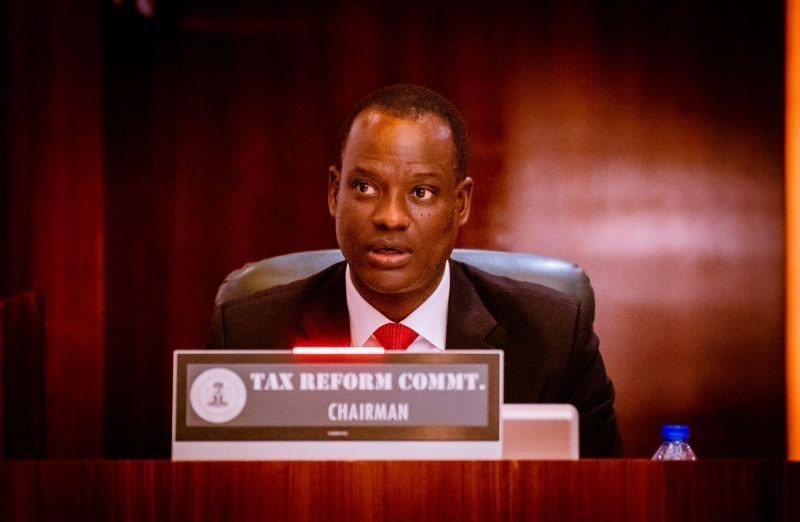Paragraph 1: Introduction and Overview of Tax Reform Bills
Nigeria is undergoing a significant overhaul of its tax system with the introduction of four Tax Reform Bills by President Bola Tinubu in October 2024. These bills – the Nigeria Tax Bill 2024, the Tax Administration Bill, the Nigeria Revenue Service Establishment Bill, and the Joint Revenue Board Establishment Bill – aim to consolidate existing tax laws, streamline tax administration, and enhance revenue generation. A key proponent of these reforms, Taiwo Oyedele, Chairman of the Presidential Committee on Fiscal Policy and Tax Reforms, has emphasized that over 90% of workers in both public and private sectors will benefit from lower taxes if the reforms are implemented. This comprehensive reform seeks to address issues of regressivity in the current tax system, encourage formalization of businesses, and provide relief to low-income earners.
Paragraph 2: Impact on Personal Income Tax and Benefits for Low-Income Earners
The proposed reforms significantly impact personal income tax, with a focus on alleviating the burden on low-income earners. Individuals earning N1.7 million or less per month are projected to experience a reduction in their Pay As You Earn (PAYE) tax. Furthermore, those earning the new minimum wage and slightly above will be entirely exempted from paying income tax. This exemption is further bolstered by a combination of annual tax-free allowance of N800,000 and a rent relief of up to N200,000, effectively exempting individuals earning up to N1 million annually (approximately N83,000 monthly). This structure specifically targets low-income earners, ensuring they are not disproportionately affected by taxation.
Paragraph 3: Addressing Fiscal Drag and Promoting Progressivity
A core issue addressed by the reforms is the problem of “fiscal drag.” The current tax table, introduced in 2011, has not been adjusted for inflation, pushing many low-income earners into higher tax brackets over time. This resulted in a regressive system where individuals earning significantly different incomes ended up paying the same top marginal tax rate. The proposed changes aim to reinstate the progressive nature of the tax system by adjusting tax bands and rates. This ensures that higher-income earners contribute a larger percentage of their income in taxes, while lower-income earners receive much-needed relief. Oyedele highlights that the new system is designed to prevent scenarios where individuals earning slightly above the exemption threshold end up worse off after tax than those within the threshold, a flaw present in the current system.
Paragraph 4: Encouraging Formalization and Simplifying the Tax System
Beyond addressing personal income tax, the reforms also target the disparity between the tax burdens on companies and enterprises. The current regime sees a significantly higher effective tax rate on companies, discouraging formalization and creating opportunities for tax arbitrage. The proposed changes seek to level the playing field by incorporating existing reliefs and allowances into the new tax bands and rates. This simplification aims to create a more equitable and transparent tax system, encouraging businesses to operate within the formal economy. A simplified system also contributes to easier administration and compliance, benefiting both taxpayers and the revenue authority.
Paragraph 5: Other Key Provisions and Opposition to the Reforms
The tax reform bills encompass other significant changes, including an increase in the Value Added Tax (VAT) rate from 7.5% to 10% by 2025, with plans for further increments. Additionally, a 5% excise duty is proposed on telecommunications services. These changes are designed to broaden the tax base and increase government revenue. However, these proposals have faced considerable opposition from various stakeholders concerned about the potential impact on consumers and businesses. Despite the resistance, President Tinubu has affirmed his commitment to the reforms, emphasizing their importance for the country’s economic future.
Paragraph 6: Conclusion and Future Outlook
The proposed tax reforms represent a significant shift in Nigeria’s fiscal policy, aiming to create a more equitable, efficient, and revenue-generating tax system. While the reforms promise lower taxes for the majority of workers, the proposed VAT increase and excise duty on telecommunications have generated controversy. The government’s commitment to these reforms, despite opposition, suggests a strong resolve to push through these changes. The long-term success of these reforms will depend on their implementation, and their impact on the economy and the welfare of Nigerian citizens will be closely monitored in the coming years. The government’s task now lies in effectively communicating the benefits of these reforms to the public and addressing the concerns of those who oppose them. This open dialogue will be crucial to ensure a smooth transition and maximize the potential benefits of the reformed tax system.














